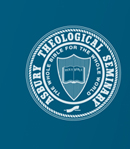Abstract
This paper examines the relationship betweenJohn Wesley's empiricism and his use of the language of "spiritual sensation." Through a close reading of Wesley's own espousal of empiricism, as well as his use of the language of the spiritual senses, it will be argued that Wesley, while committed to empiricism as a natural epistemology, views the experience of the Spirit as something which is known intuitively. H is references to the spiritual senses are therefore best understood as an analogy for this intuitively known experience of the Spirit. While Wesley's discussions of spiritual sensation are not simply an extension of his empiricism, he does, at times, try to integrate his acccunt of theological knowledge with his empiricism. The paper concludes by addressing challenges that Wesley's use of the language of spiritual sensation poses for both the coherence and the adequacy of his theology.
DOI
10.7252/Journal.01.2012F.05
Recommended Citation
Pedlar, James E.
(2012)
"Sensing the Spirit: Wesley's Empiricism and His Use of the Language of Spiritual Sensation,"
The Asbury Journal:
Vol. 67:
No.
2, p. 85-104.
Available at:
https://place.asburyseminary.edu/asburyjournal/vol67/iss2/7
Included in
Missions and World Christianity Commons, Other Religion Commons, Religious Thought, Theology and Philosophy of Religion Commons

